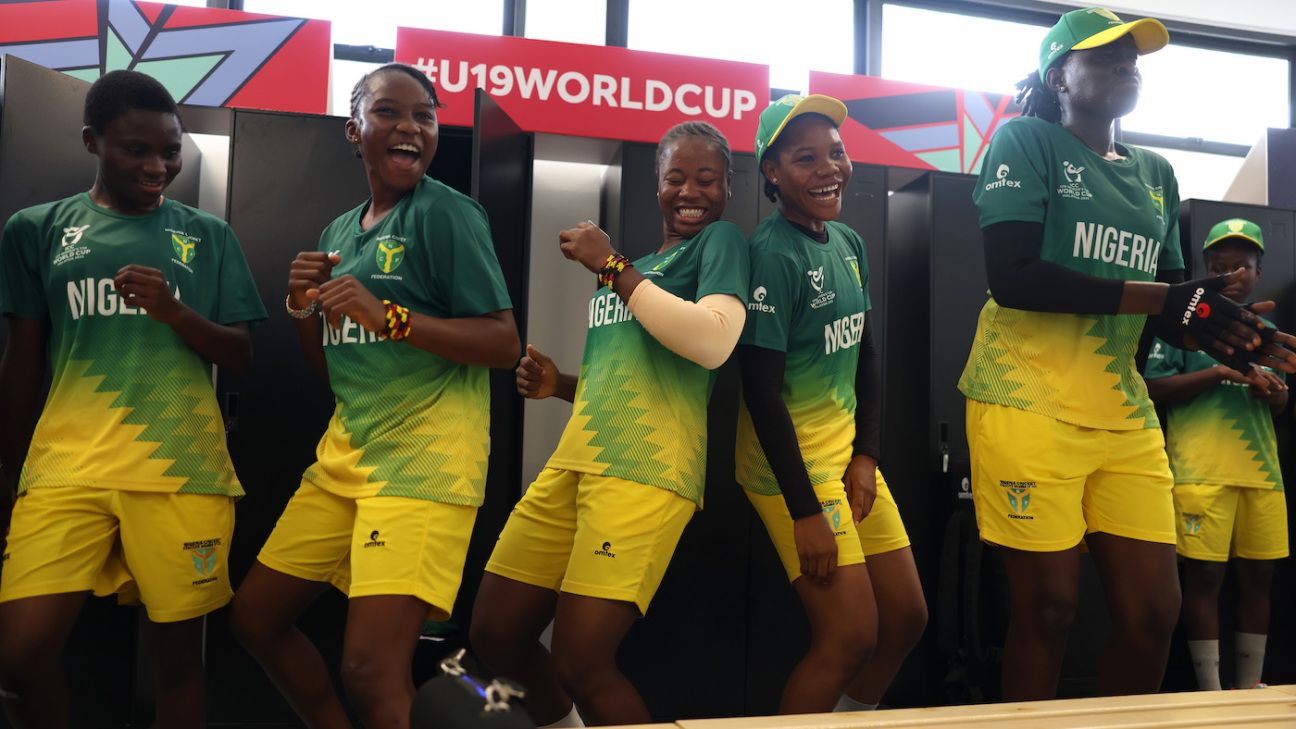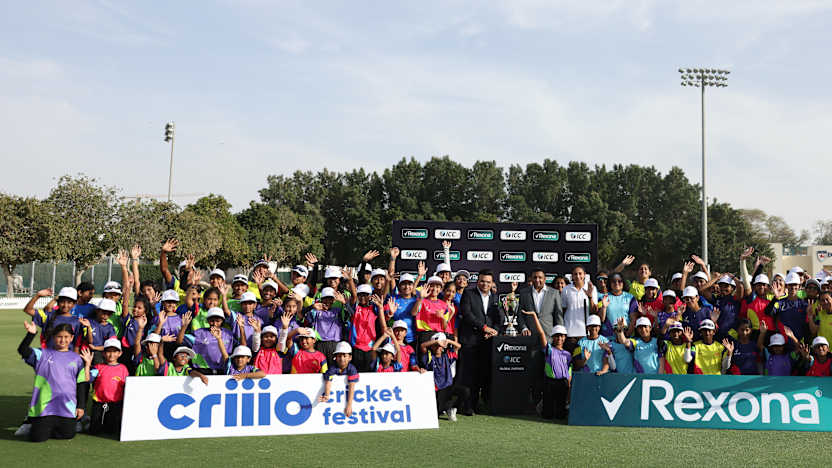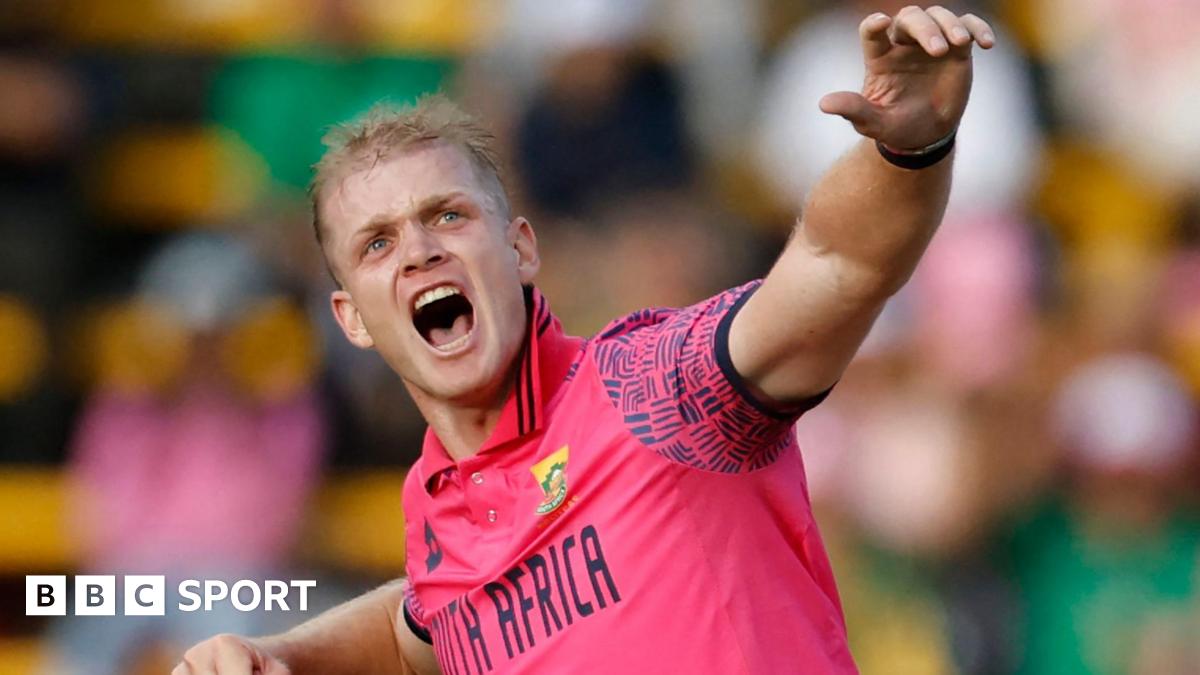How Nigeria’s women put West Africa on cricketing map and at Under-19 World Cup

Cricket in Africa has its most significant presence in the south of the continent, and pockets of growth and progress in the east. But now, for the first time, the west will have a presence at a global tournament after Nigeria qualified for this year’s Under-19 women’s T20 World Cup.
The history nerds will know that it has not taken this long for Nigeria, a British colony from 1851-1954, to embrace the sport of empire. It is because cricket has been played there since the early 1900s, but simply that it has needed this amount of time for Nigeria to excel. Despite having an established cricket federation since 1957 and being an ICC Associate Member since 2002, it was only in the last decade that Nigeria got serious about developing its cricket – as both a men’s and a women’s game.
“Over the last five to seven years, there have been some great plans towards the development of cricket – around building infrastructure, building partnerships, [and] collaborations, and specifically, also developing female cricket tournaments and organisations,” Femi John, the women’s under-19 team manager told ESPNcricinfo from Malaysia, where the age-group World Cup gets underway on Saturday.
“In particular, for the females and the males that are in the age-group categories, we actually have a tournament which includes all our six zones. It has been a deliberate process for the Nigerian Cricket Federation. We’ve set a target of introducing cricket to about 250,000 new intakes on an annual basis for the next five years.”
“I was so aggressive, and it just happened that the president of the Nigerian Cricket Federation was watching the game. And he was like, ‘This character, there’s something that I would like transferred to the girls,” Wetoto told ESPNcricnfo. “So after the game, he came and talked to me and told me that he wanted me to mentor these girls so that they can actually bat like that.
“And the next year, in 2023, after my retirement, I joined the federation. I joined on a consultancy basis, but last year, started a three-year contract with them, and I took up the Under-19 role.”
Wetoto was immediately impressed by what she saw in Nigeria, especially when compared to the neglect cricket finds itself in back home in Kenya.
“Nigeria Cricket is well-structured, and the development plans are really good. They have a lot of development activities that are feeding into the national team,” she said. “Kenya was more exposed than Nigeria at some point. But right now, I still feel like we don’t really have a good management to bring us back to where we were before.
“In Nigeria, you’re getting a pool of quality players which are very competitive. Even selecting this team and just to pour out what you have to them – and seeing how it is implemented by the girls – is actually amazing.”
Nigeria also have a two-tier domestic league, which John calls “one of the fastest growing leagues in Africa”. It consists of 22 teams in division 1, and 16 in division 2 – although all are male. However, some clubs are starting to include some women’s players in their teams, and there is a desire to start a women’s league too.
“The federation is very passionate about women’s cricket,” John said. “Prior to now, we had certain plans on how female cricket would progress, but the World Cup qualification has sped us up. We have the Ps: performance, participation, [and] people. And I don’t want to bore you with all the acronyms, but really we want to participate, we want to build our people, and we want to perform.”
“Back home in Nigeria, we say cricket is life: it helps you, it shapes your mindset, it shapes your value system”
Femi John, Nigeria Women’s Under-19 team manager
That’s the kind of attitude Wetoto picked up on as soon as she joined the coaching staff, and she continues to praise an attitude that she believes will make them successful.
“Their approach to the game, aggression, and the hunger to actually get the job done stands out,” Wetoto said. “You can be technically sound, but if you’re nervous, nothing works. As a player, whenever I was nervous, I could not score runs. But if I calmed my nerves, then I got runs. I feel their self-belief is a strength, but also eye-hand coordination for them when it comes to batting. They really watch the ball well, and I feel like they’re technically sound.”
We’ll be able to see that ourselves over the course of the Under-19 World Cup. Nigeria will kick off their campaign against Samoa before taking on the bigger names.
“We know we have big teams like South Africa and New Zealand [in our group], but I believe in our capability,” Wetoto said. “Last year, we went to Ghana for the All African Games and the South African Emerging team came to that tournament, and we really gave them a run for their money.”
Those results gave Nigeria the confidence that they could qualify for the Under-19 World Cup when they went to Rwanda in September. They finished on top of a group that included Zimbabwe, which proved crucial to their hopes. After they beat Rwanda in the semi-finals, the final was washed out, and Nigeria’s pool match performance against Zimbabwe saw them through their first ICC event, which is an honour they will cherish.
Big-tournament participation is a particular source of pride for Nigeria because they do it so often in their main sport. Football is Nigeria’s most popular – and successful – sport across both genders, and their women’s national team has won the African Cup of Nations 11 times while also being to every World Cup since 1991, sometimes as the continent’s only representative. The World Cup bug has now bitten in cricket too, and John hopes their advancement to the Under-19 women’s World Cup will fuel further interest in the game – at fan and funding levels.
“Football is a major sport in Nigeria, and which also attracts a lot of funding from corporates. But if cricket got just 10% of that, you would see a major impact,” John said. “We compete by showcasing what cricket can do in the life of an individual. Back home in Nigeria, we say cricket is life: it helps you, it shapes your mindset, [and] it shapes your value system.
“So one of the things we try to do is to position it to the parents of the younger kids that this is what cricket can do. And coming to the World Cup, we are able to now showcase this to people back home, and say, ‘These people started this journey some years ago, and this is where they are now. This is the potential’. This also gives an opportunity to market and sell cricket more.”
Firdose Moonda is ESPNcricinfo’s correspondent for South Africa and women’s cricket
Related
‘Listen from one ear, ignore from the other’: Former India…
India's Rohit Sharma and Mohammed Shami (AP Photo) NEW DELHI: Former wicketkeeper-batter Syed Kirmani has expressed his opinion that experienced fast bowler Mo
India faces New Zealand in budding rivalry at Champions Trophy…
State AlabamaAlaskaArizonaArkansasCa
ICC and Unilever announce landmark partnership on International Women’s Day…
The two-year partnership, kicking off at this year’s Women’s Cricket World Cup in India and running until the end of 2027, marks the world cricket governing
IPL 2025: Mumbai Indians sign Corbin Bosch as replacement for…
Mumbai Indians have signed South Africa all-rounder Corbin Bosch as a replacement for his injured countryman Lizaad Williams for this year's Indian Premier Leag











